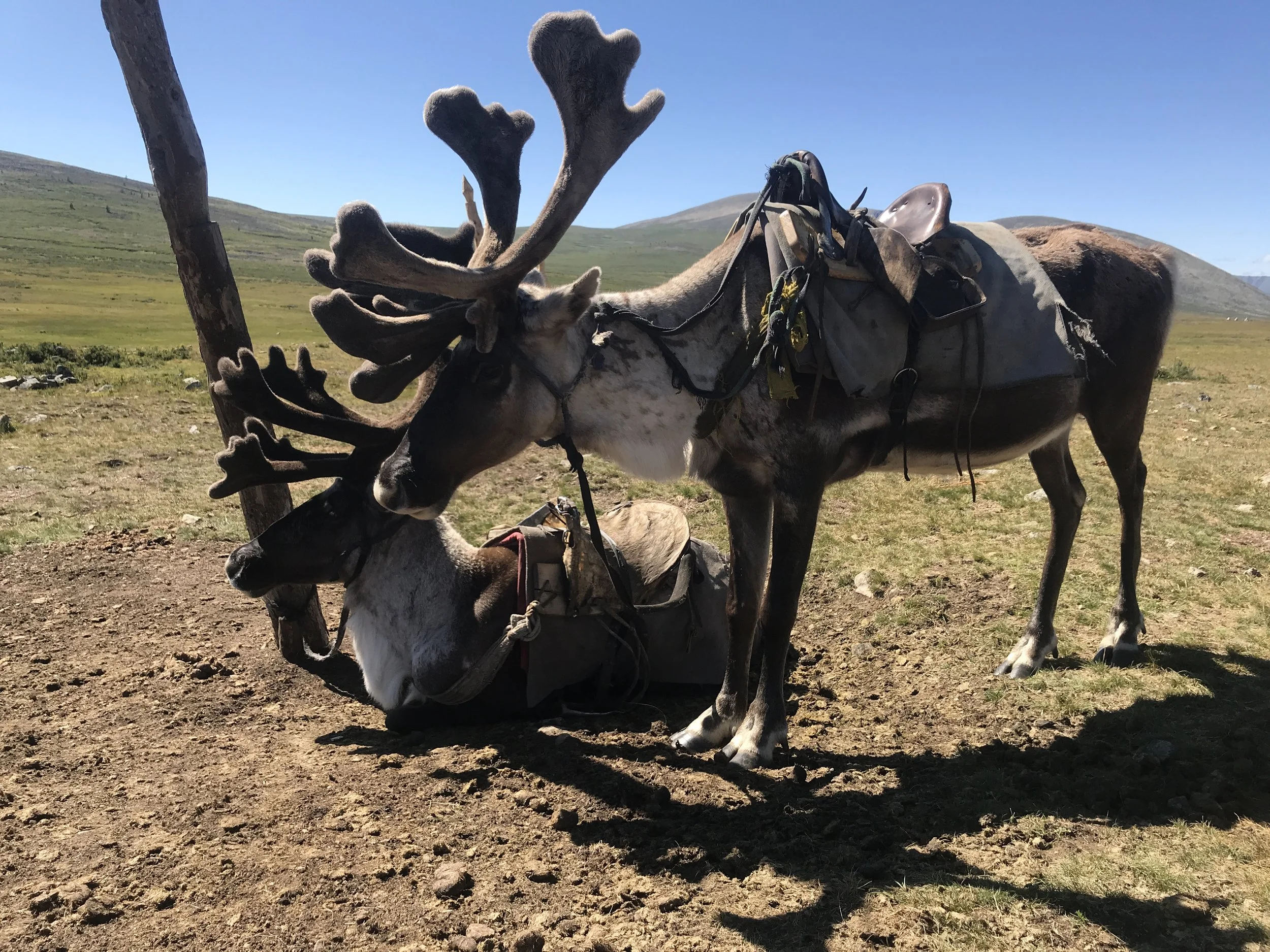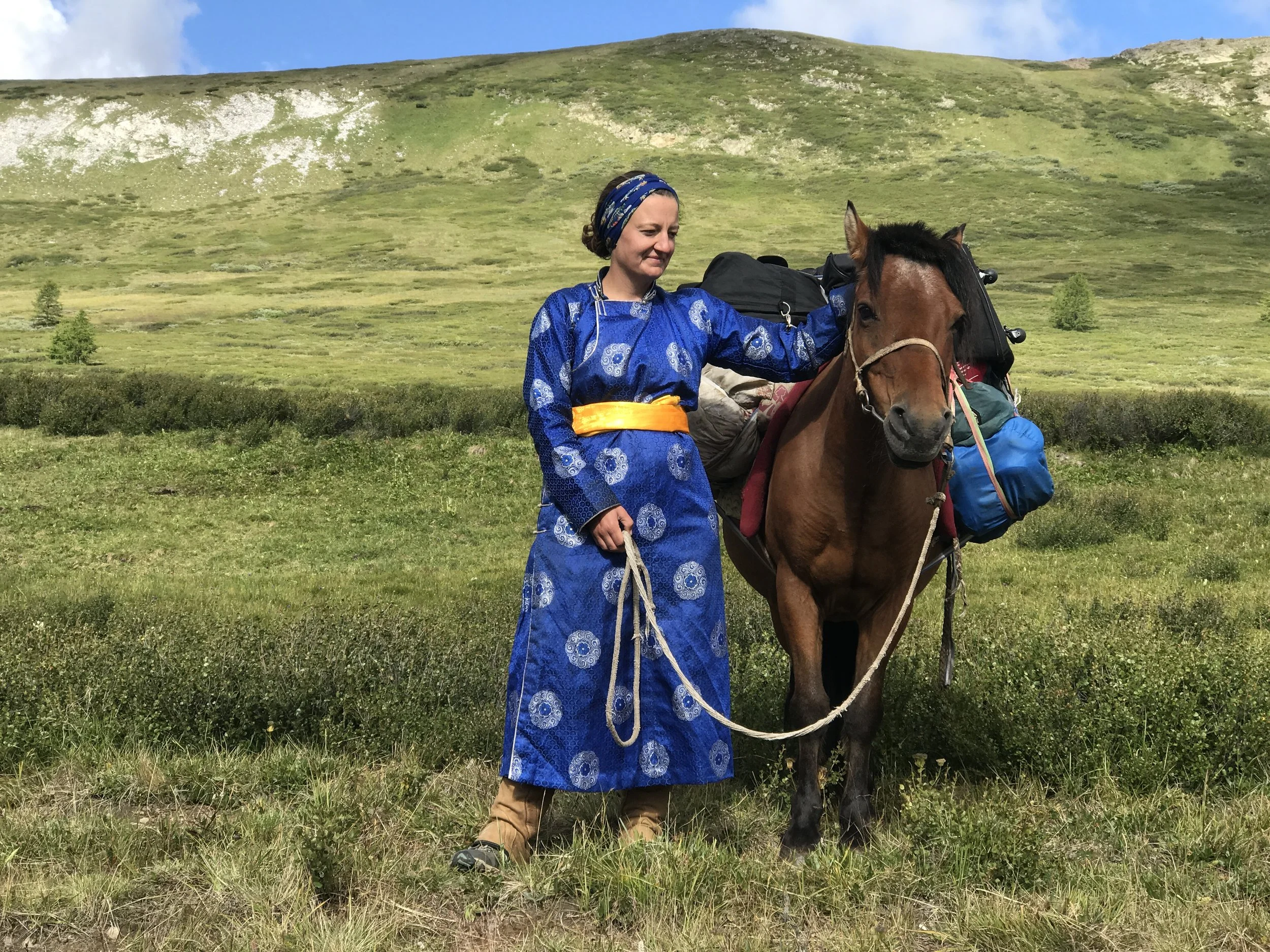Session IV: West Taiga Exploration
This session is part of a continual colleaboration with Dukha reindeer Herders in northern Mongolia.
Dates: August 20 - September 10, 2026
Fees: $4,250 USD
Why are we doing this?
Nomad Science has worked hard to cultivate a strong collaboratory relationship with the Dukha (Tsaatan) reindeer herders of northern Mongolia. Together, we have worked to inspect melting ice patches for archaeological remains, surveyed and excavated historical and prehistorical sites within their territories to better understand landscape use in the Taiga, and conducted ethnographic interviews about the history, present and future of reindeer herding. These have been some of our most adventurous and exciting field trips, so when our local guides said that they had a new area that they wanted to show us, a place that we had never been before, we couldn’t resist! We don’t know what we’ll find, but we are excited to find out. Armed with site predictive models and guides with intimate knowledge of the region, we are sure to find something of interest or at least have a great time trying.
Field Activites and Skills
During this session, the team will travel by horseback daily to various parts of the remote West Taiga region of northern Mongolia. Participants will become acquainted with site predictive models developed in the area, and use that knowledge to scan the landscape and conduct surveys that locate new archaeological sites. Participants will learn how to identify lithics, ceramics, and other signs of ancient activities on the Mongolian landscape. Additionally, participants will work with local guides to learn about and practice the traditional skills of the Dukha reindeer herders.
Intended Outcomes
We hope that this pilot study will result in the discovery of new highland Taiga/Tundra sites in northern Mongolia, and a refining of our site predictive models. These sites may improve our database, or if particularly interesting, may warrant a more intense investigation or excavation in future field seasons. We have been working closely with local communities to conduct inventory surveys so that they might better understand and manage their own archaeological resources. This project will increase the area covered by this inventory.
Description of Camp Life
We will be travelling by horse daily, and camping in a new location nearly every night. As we are continually packing/unpacking, it is recommended that you travel as lightly and simply as possible while still being prepared. Nomad Science can help you decide what to pack if you need help. Participants will help with food preparation, and cooks will make our meals over a campfire. Pristine freshwater streams will provide ample water, though we will still be sure to filter it just to be sure. The campsite locations will be extermely remote, so participants should be sure they are in good physical and mental health before going on this expedition.



